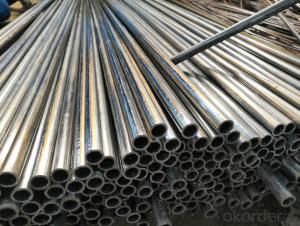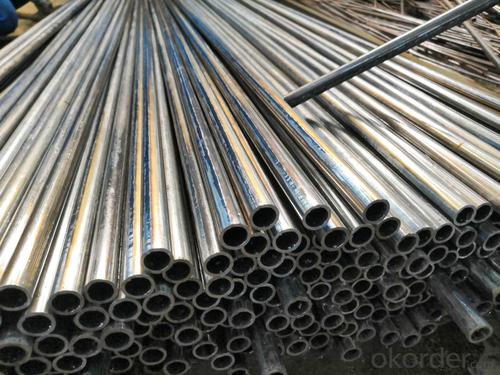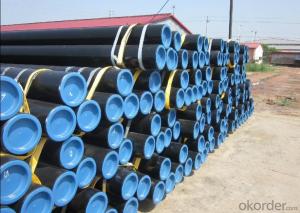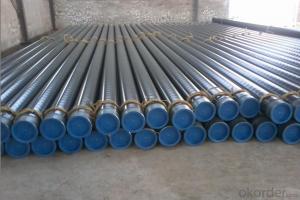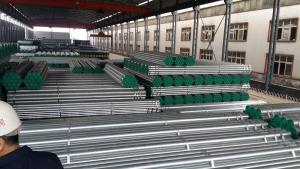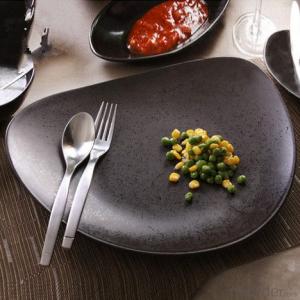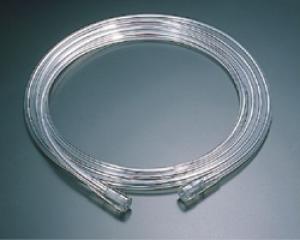Special steel smelting blowing oxygen tube
- Loading Port:
- Shanghai
- Payment Terms:
- TT OR LC
- Min Order Qty:
- 20 m.t
- Supply Capability:
- 800 m.t/month
OKorder Service Pledge
OKorder Financial Service
You Might Also Like
Specification
The oxygen blowing tube is a small-caliber steel pipe used for making steel and blowing oxygen. Generally, small-caliber welded steel pipes are used. The standard is from 3/8 inch -2 inch eight, with 08, 10, 15, 20 or Q195-Q235 steel belts. Made. In order to prevent erosion, some of them perform aluminizing treatment.
Features:
Decarbonization
Carbon and other chemicals give specific properties or properties to metals, so these chemicals should be carefully measured and controlled during smelting. Oxygen tubes are used in blast furnaces, converters, induction furnaces, and arc furnaces to make steel carbon, that is, oxygen rich mixtures are injected into metal melt through blow tubes. The oxidation reaction burns the excess carbon in the metal melt, reducing its carbon composition to a suitable standard.
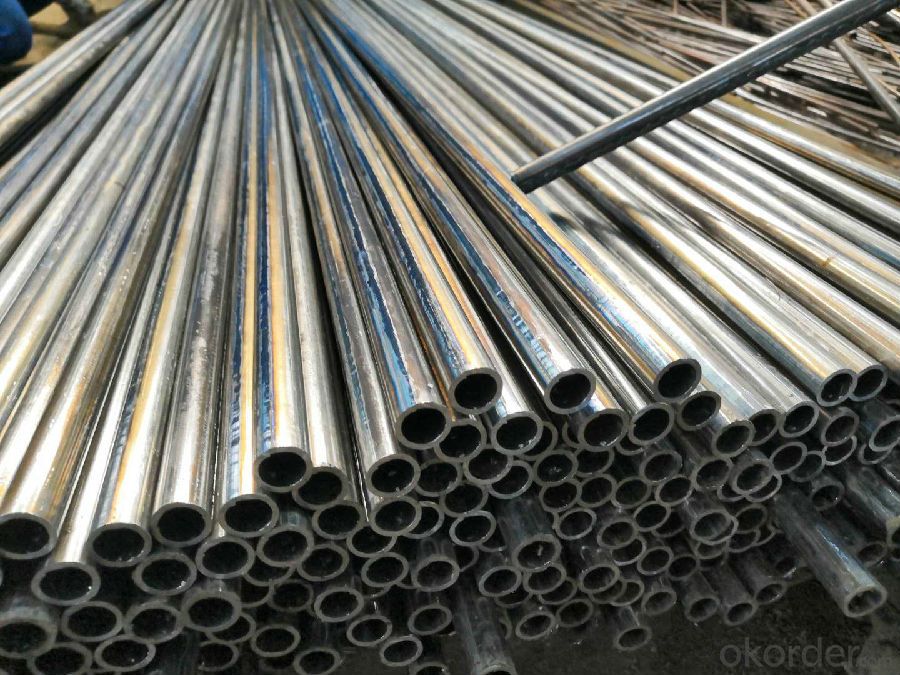 Iron mouth
Iron mouth
When the expected steel water composition and temperature are reached, the iron mouth is opened by means of a blow tube through drilling and tapping. One end of the oxygen blowing tube is connected to hyperbaric oxygen, and the end of the oxygen blowing tube is ignited. Through careful and skilled operation, the iron cannon mud with a thickness of 800 mm can be burned, which helps the flow out of the metal melt.
Clean the steel pack.
After the casting process is over, the steel package blocks need to be cleaned immediately. The slag on the package needs to be cleaned up. The blow tube is used to clean up and down the pipe mouth, such as the embedded slag at the bottom of the steel package, and also needs to be cleaned with a blow tube.
Clear the middle water outlet.
The intermediate package is a container that temporarily stores metal melt during the steelmaking process. It is more economical to replace the entire water filling system by cleaning the intermediate filling port with a blowing tube.
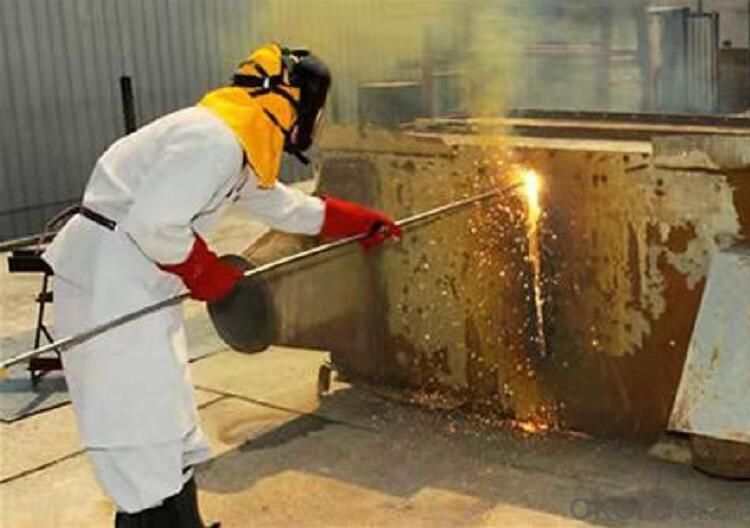 Clean up the skin.
Clean up the skin.
The oxygen blowing tube can effectively cut and clean the slag skin caused by the slag layer. The solidified or solidified metal forms an insulating layer from the refractory material, reduces heat loss, and protects the lining from corrosion, chemical erosion, and thermal impact.
Clear steel spillage
The blowing tube is used to divide the solidified steel spillage into small parts that are easy to treat and to facilitate the remelting or treatment of some valuable spillage.
Where to sell Q235 blowing oxygen pipes, Q235 blowing oxygen tubes spot price, blowing oxygen tubes are used for steel blowing oxygen pipes, generally used welding steel pipes, specifications from 3/8 inches -2 inches eight. Made of 08, 10, 15, 20 or Q195-Q235 steel belts. In order to prevent erosion, some of them perform aluminizing treatment.
Specification: 5m-16m
5 * 1, 5 * 1.5, 6 * 1, 6 * 1.2, 6 * 1.5, 8 * 1, 8 * 1.2, 8 * 1.5, 9.52 * 1.24, 10 * 1, 10 * 1.2, 10 * 1.5, 10 * 1.8, 10 * 2, 10.5 * 2.5, 12 * 1, 12 * 1.2, 12 * 1.5, 12 * 1.8, 12 * 2, 13 * 1, 13 * 1.2, 13 * 1.5, 13 * 2, 14 * 1, 14 * 1.2, 14 * 1.5, 14 * 2, 16 * 1, 16 * 1.2, 16 * 1.3, 16 * 1.4, 16 * 1.5, 16 * 2, 17 * 2, 18 * 2, 19 * 2, 20 * 2, 21 * 2, 22 * 2, 27 * 2, 38 * 11, etc., and can produce special specifications of blowing tubes, coating blowing tubes, seamless blowing oxygen Guandeng.
Oxygen Pipe Co., Ltd. and Japan's Sumitomo Metals, Kawasaki Iron, New Japan Iron Kobe Steel, Germany's Waluruike, Bentele, and Spain's T.R and Tvbesex, Italy Dalming and other world-renowned steel pipe production companies have a good cooperative relationship, It is a Japanese JFE company's spot supplier in the Chinese market. At the same time, the company and Tianjin seamless, Baosteel steel pipe, Hengyang steel pipe, Baotou steel pipe, Chengde steel pipe and other domestic large-scale steel pipe manufacturers have established a good cooperative relationship. It is now the agent of high pressure alloy tube Tianjin, Chengdu Iron and Steel Co., Ltd.. Through several years of hard work, the company has become a large scale alloy steel pipes, steel pipes for structure, welding pipes, Square moment tubes, heterogeneous tubes, copper pipes and steel materials production and sales base. At the same time, the company has sold seamless pipes, alloy tubes, welding pipes, galvanized tubes, heterogeneous tubes, and Guandeng products from major domestic steel mills to all parts of the world. The products are exported to South, North America, Australia, Africa, Europe and the Middle East. The country is well received by domestic and foreign customers.
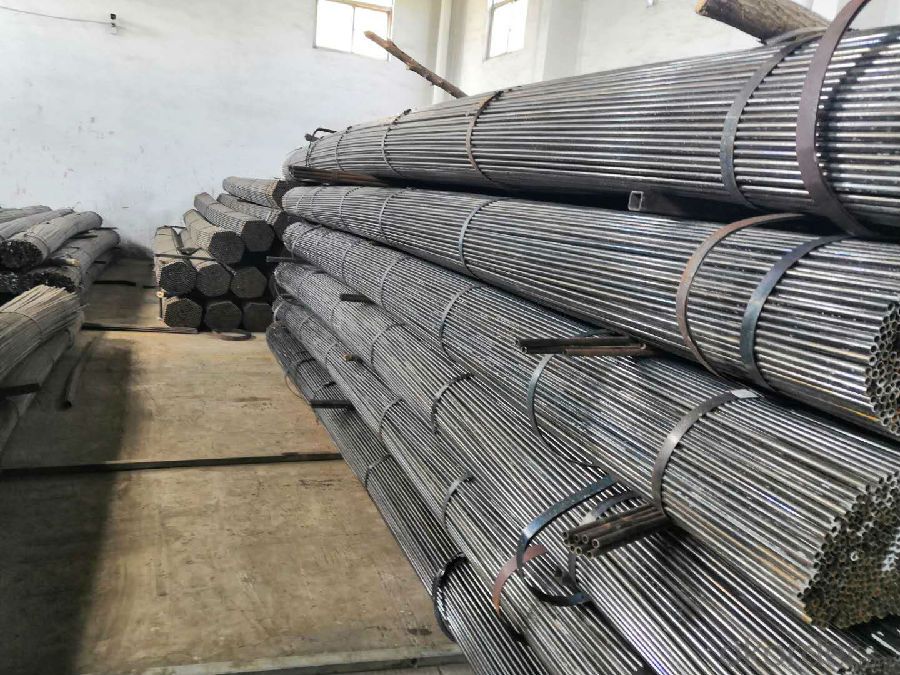 Our company's main products are: purple copper pipe also known as copper pipe. Nonferrous metal tube. It's a pressed and pulled seamless tube. Light weight, good thermal conductivity, high low temperature strength. Commonly used in the manufacture of heat transfer equipment(such as condensers, etc.). It is also used to assemble low-temperature pipelines in oxygen production equipment. Small diameter copper tubes are often used to transport pressure liquids(such as lubrication systems, hydraulic systems, etc.) and pressure measurements used as instruments. Copper pipes have strong, corrosion-resistant characteristics and become the first choice for modern contractors to install tap water pipes, supply pipes, and refrigeration pipes in all residential commercial houses. Heterotype tube tubes can be divided into elliptical heterotype steel pipes, triangular heterotype steel pipes, hexagonal heterotype steel pipes, diamond-shaped heterotype steel pipes, octagonal heterotype steel pipes, and semicircular heterotype steel circles. Unequal hexagonal heterotype steel pipes, five-plum-shaped heterotype steel pipes, double-convex heterotype steel pipes, double-concave heterotypic steel pipes, melon son heterotypic steel pipes, conical heterotypic steel pipes, and wavy heterotypic steel pipes. Heterotype tube, heterotype tube, moment type tube, heterotype welded tube, spiral welded tube, specification: 20 * 20mm -500mm, wall thickness 0.6mm -20mm, spiral steel pipe. Spiral steel pipe specification, 219mm -2020mm, Wall thickness 5mm -20mm. Straight seam specifications are 4 minutes, 6 minutes, 1 inch, 1.2 inches, 1.5 inches, 2 inches, 2.5 inches, 3 inches, 4 inches, 5 inches, 6 inches, 8 inches, 102, 108, 127, 133, 139, 159, 168, 177, 194, 219 Heterotype tubes such as 273 and 325 generally refer to rectangular steel pipes. Casting special oxygen blowing tubes, referred to as oxygen melting rods, oxygen melting rods, also known as oxygen blowing rods and oxygen arc melting rods, are the first products of Shanghai Baosteel to have rapid melting and cleaning functions. As long as it is fuelled by oxygen, it can immediately produce a high temperature of 3,600 degrees, allowing the processed workpieces(metal, non-metal, concrete, rock) to be quickly melted or cleaned to achieve the purpose of the operation. Also produced seamless steel pipes, stainless steel pipes, composite pipes, galvanized Guanji other pipes, high quality prices. The products are sold throughout the country and exported to more than a dozen countries and regions such as Southeast Asia, the Middle East, Europe and the United States, and enjoy high honors in domestic and foreign markets.
Our company's main products are: purple copper pipe also known as copper pipe. Nonferrous metal tube. It's a pressed and pulled seamless tube. Light weight, good thermal conductivity, high low temperature strength. Commonly used in the manufacture of heat transfer equipment(such as condensers, etc.). It is also used to assemble low-temperature pipelines in oxygen production equipment. Small diameter copper tubes are often used to transport pressure liquids(such as lubrication systems, hydraulic systems, etc.) and pressure measurements used as instruments. Copper pipes have strong, corrosion-resistant characteristics and become the first choice for modern contractors to install tap water pipes, supply pipes, and refrigeration pipes in all residential commercial houses. Heterotype tube tubes can be divided into elliptical heterotype steel pipes, triangular heterotype steel pipes, hexagonal heterotype steel pipes, diamond-shaped heterotype steel pipes, octagonal heterotype steel pipes, and semicircular heterotype steel circles. Unequal hexagonal heterotype steel pipes, five-plum-shaped heterotype steel pipes, double-convex heterotype steel pipes, double-concave heterotypic steel pipes, melon son heterotypic steel pipes, conical heterotypic steel pipes, and wavy heterotypic steel pipes. Heterotype tube, heterotype tube, moment type tube, heterotype welded tube, spiral welded tube, specification: 20 * 20mm -500mm, wall thickness 0.6mm -20mm, spiral steel pipe. Spiral steel pipe specification, 219mm -2020mm, Wall thickness 5mm -20mm. Straight seam specifications are 4 minutes, 6 minutes, 1 inch, 1.2 inches, 1.5 inches, 2 inches, 2.5 inches, 3 inches, 4 inches, 5 inches, 6 inches, 8 inches, 102, 108, 127, 133, 139, 159, 168, 177, 194, 219 Heterotype tubes such as 273 and 325 generally refer to rectangular steel pipes. Casting special oxygen blowing tubes, referred to as oxygen melting rods, oxygen melting rods, also known as oxygen blowing rods and oxygen arc melting rods, are the first products of Shanghai Baosteel to have rapid melting and cleaning functions. As long as it is fuelled by oxygen, it can immediately produce a high temperature of 3,600 degrees, allowing the processed workpieces(metal, non-metal, concrete, rock) to be quickly melted or cleaned to achieve the purpose of the operation. Also produced seamless steel pipes, stainless steel pipes, composite pipes, galvanized Guanji other pipes, high quality prices. The products are sold throughout the country and exported to more than a dozen countries and regions such as Southeast Asia, the Middle East, Europe and the United States, and enjoy high honors in domestic and foreign markets.
Our company is strong, adopt and spot combination of business model. We have thousands of tons of stock in stock, sufficient supply, complete specifications and prompt delivery. Established a perfect purchasing → selling → transportation integrated supply and marketing service network.
At the same time, our company is a designated company of PetroChina and Sinopec, which has special equipment licenses and classification society certification. Our company solemnly promises to you: guarantee the best quality, the lowest price, the most perfect after-sales service to thank new and old customers.
- Q: Can steel pipes be coated for additional protection?
- Yes, steel pipes can be coated for additional protection. Coatings such as epoxy, polyethylene, or zinc can be applied to steel pipes to enhance their durability, corrosion resistance, and longevity.
- Q: How are steel pipes used in power plants?
- Power plants rely heavily on the extensive use of steel pipes for a variety of purposes. When it comes to transporting fluids and gases, steel pipes are the go-to choice. They effectively carry water, steam, and fuel (like oil or gas) throughout the power plant. The reason steel pipes are so widely used for this purpose is because of their exceptional strength and durability. They can withstand the high pressures and temperatures found in power plants without faltering. Another crucial role steel pipes play in power plants is in the boilers. They are an integral part of the boiler system, responsible for the transportation of hot gases and steam. These pipes are specifically designed to endure extreme heat and pressure, ensuring the safe and efficient operation of the boiler. Moreover, steel pipes are utilized in the cooling systems of power plants. They facilitate the circulation of water to cool down essential equipment such as turbines and condensers. These pipes are built to withstand corrosion caused by the cooling water, all while maintaining the required flow rate and pressure. Additionally, steel pipes find their place in the construction of power plant structures. They are extensively used for fabricating support structures like frames, platforms, and walkways. Steel pipes possess excellent structural integrity and can bear heavy loads, making them the perfect choice for these applications. In conclusion, steel pipes fulfill a crucial role in power plants by efficiently transporting fluids and gases, serving as an essential component of the boiler system, facilitating cooling processes, and providing structural support. Their strength, durability, and resistance to extreme conditions make them indispensable in the operation of power plants.
- Q: How are steel pipes used in offshore drilling platforms?
- Steel pipes are used in offshore drilling platforms to transport drilling fluids, such as mud and cement, from the drilling rig to the wellbore. These pipes are also used to extract oil and gas from the well by connecting the drilling rig to the subsea wellhead. Additionally, steel pipes provide structural support and stability to the drilling platform, ensuring safe and efficient operations in harsh offshore environments.
- Q: How are steel pipes used in the construction of bridges?
- Steel pipes are commonly used in the construction of bridges for various purposes such as supporting the bridge structure, providing stability, and facilitating the passage of fluids like water or gases. Steel pipes are used as piers or piles to support the weight of the bridge, acting as strong and durable foundations. They are also used for constructing the bridge's framework, such as beams and trusses, which provide the necessary strength and load-bearing capacity. Additionally, steel pipes may be used as conduits for utilities like water, gas, or electrical cables, allowing for efficient transportation across the bridge.
- Q: Can steel pipes be used for bridge piling?
- Yes, steel pipes can be used for bridge piling. Steel pipes are commonly used for bridge piling due to their strength, durability, and resistance to corrosion. They provide a strong foundation for bridges, ensuring stability and longevity.
- Q: What are the environmental impacts of using steel pipes?
- The environmental impacts of using steel pipes include the extraction and processing of raw materials, such as iron ore and coal, which contribute to deforestation, habitat destruction, and greenhouse gas emissions. The manufacturing process also generates significant amounts of waste, including slag and emissions from steel production. The transportation and installation of steel pipes contribute to carbon emissions, while their corrosion and maintenance may result in the release of toxic substances into the environment. Proper waste management and implementing sustainable practices can help mitigate some of these impacts.
- Q: What are the different standards for steel pipe manufacturing?
- There are several different standards for steel pipe manufacturing, including ASTM (American Society for Testing and Materials), ASME (American Society of Mechanical Engineers), API (American Petroleum Institute), and DIN (Deutsches Institut für Normung). These standards provide specifications for various aspects of steel pipe production, such as dimensions, chemical composition, mechanical properties, and testing procedures. Compliance with these standards ensures the quality and reliability of steel pipes for different applications and industries.
- Q: What are the different grades of steel used in manufacturing pipes?
- There are several grades of steel used in manufacturing pipes, including carbon steel, alloy steel, stainless steel, and duplex steel. Each grade has distinct properties and characteristics that make it suitable for different applications and environments.
- Q: Are steel pipes resistant to fire?
- Yes, steel pipes are highly resistant to fire.
- Q: Can steel pipes be used for underground chemical injection?
- Yes, steel pipes can be used for underground chemical injection. Steel pipes are commonly used in various industries for their durability, strength, and resistance to corrosion. When it comes to underground chemical injection, steel pipes offer many advantages. They can withstand high pressure and temperature, making them suitable for transporting and injecting chemicals into the ground. Additionally, steel pipes have excellent chemical resistance, ensuring that they will not react with the injected chemicals and compromise the integrity of the system. However, it is important to select the appropriate grade of steel pipe that is compatible with the specific types of chemicals being injected to ensure optimal performance and longevity. Regular maintenance and inspections should also be carried out to identify any potential corrosion or damage to the pipes, ensuring the safe and efficient operation of the chemical injection system.
Send your message to us
Special steel smelting blowing oxygen tube
- Loading Port:
- Shanghai
- Payment Terms:
- TT OR LC
- Min Order Qty:
- 20 m.t
- Supply Capability:
- 800 m.t/month
OKorder Service Pledge
OKorder Financial Service
Similar products
Hot products
Hot Searches
Related keywords
